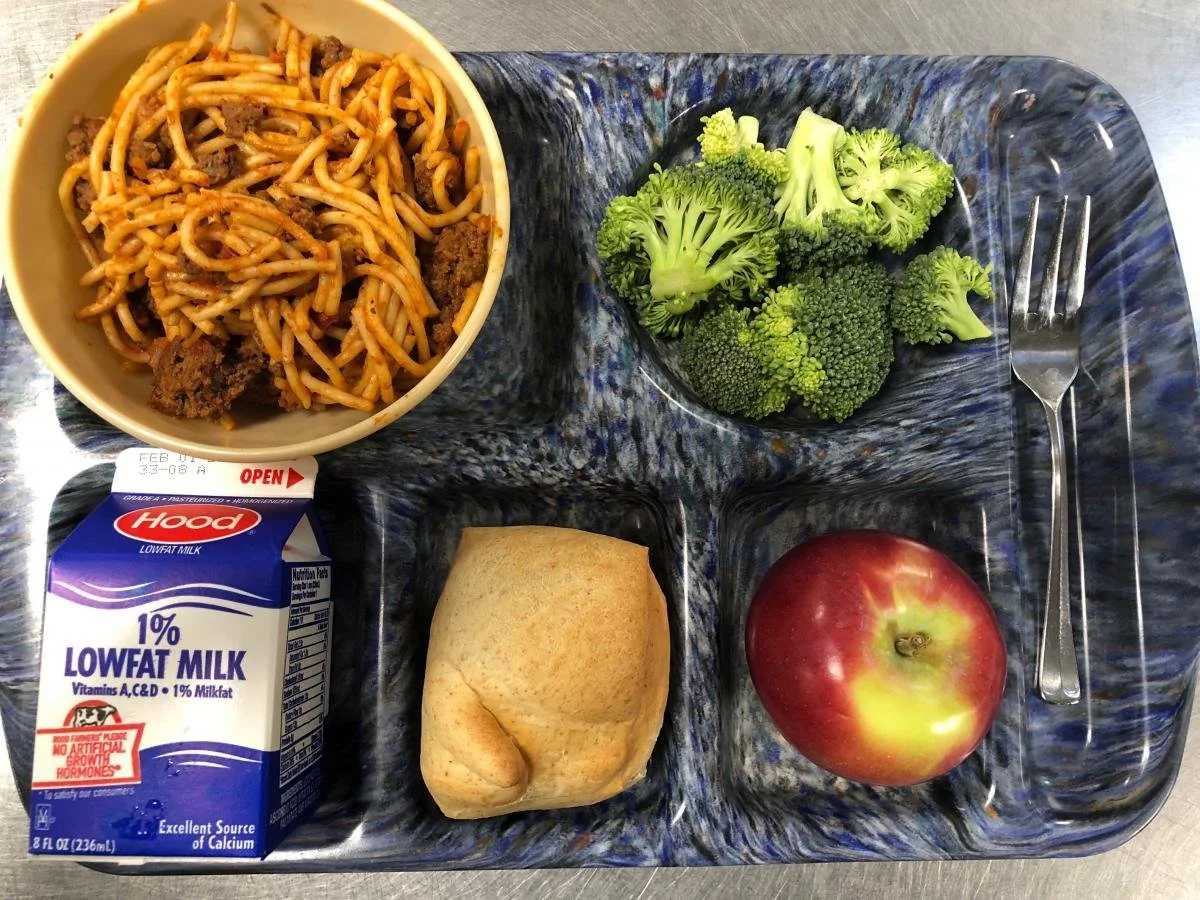Universal school meals on the menu for lawmakers
Photo courtesy of the Vermont Department of Education
Lawmakers are looking to pass a bill to make universal school meals permanent in Vermont — an extension of pandemic-era policies with a price tag pegged at $29 million for next year. It’s a move advocates say would help kids learn and be healthy.
Since the onset of the Covid-19 pandemic in 2020, children have had access to free school breakfast and lunch, funded first by the federal government. Last year, as federal money dried up, Vermont officials enacted a one-year extension to the program. Now, they want to make it a permanent part of schools in the state.
The bill, H.165, would require all public schools to provide breakfast and lunch to all students at no charge. The bill also requires approved independent schools to provide free breakfast and lunch to students attending on public tuition.
“Every kid deserves access to the same resources when they're in school, whether that’s teachers, textbooks or meals,” said Teddy Waszazak, a Barre City councilor who has been leading a campaign for the bill for Hunger Free Vermont.
Universal school meals have helped to level the playing field in schools by making sure all students are fed and ready to learn. The program can also help reduce stigmas students receiving free or reduced-cost lunch face by eliminating any differences in the ways students receive meals.
“My (students) come to school regardless of economic need,” said Rep. Erin Brady, D-Williston, who teaches at Colchester High School and is the lead sponsor of the bill. “A lot of them get on the bus at 6:15 in the morning, and they have not eaten breakfast yet. So they are so hungry and unable to focus by mid-morning. So being able to just go get breakfast — no labeling around who's getting which breakfast — it is wonderful. It's just a culture change in schools that's long overdue, and I would hate to see a slide backwards.”
For Brady, passing a measure to enshrine universal school meals is a high priority this legislative session. “We know that there was an unmet need at our schools in terms of the threshold between students who would actually qualify for free and reduced meals and students who might go hungry,” she said in a meeting with the House Agriculture Committee last week.
Waszazak said it is crucial to make the program accessible to all Vermonters. “In any program that's not universal, people fall through the cracks,” he said.
For parents working multiple jobs, already stressed, needing to fill out paperwork to obtain free or reduced lunch can be a burden that goes uncompleted. By making free school meals available for all, those who are unable to sign up, or who make above the required amount to qualify federally but still struggle to pay bills, aren’t left behind.
The bill also requires that districts and schools still maximize available federal funds to help manage the cost for the state.
The bill is currently in the House Committee on Agriculture, Food Resiliency and Forestry. In several meetings on the week of Feb. 7, the committee heard from legislative counsel about the bill and from the joint fiscal office about funding for the program. One of the only concerns lawmakers have around the bill is its cost.
In the meeting last Wednesday, Patrick Titterton and Julia Richter from the Vermont Legislative Joint Fiscal Office told the committee that the program could cost between $26 million and $31 million for 2024. Their estimate was based on the percentage of students who qualified for free or reduced lunch in 2019 and 2022 and the rates of participation from all students in 2022. Last year, legislators appropriated $29 million from the state education fund for the extended program, and the real cost is coming in around $27 million.
H.165 directs a $29 million appropriation for next year from the education fund. Analysts from the Joint Fiscal Office explained in committee last week that, to keep the education fund balanced, legislators have two options: They can look at non-property tax revenue sources or raise property taxes.
The state’s fiscal analysts found that fully funding universal school meals through property taxes would result in about a $0.03 increase on homestead and non-homestead property tax rates. The fiscal office reps also looked into and explained to the committee that other revenue streams — such as a tax on sugar-sweetened beverages and candy or an increased sales tax — could also provide the funding to keep the education fund balanced. Legislators say they will continue to evaluate ways to fund this program.
“We know it's really successful. We know it's really popular,” Brady said, “and it would be really disruptive to take it away now and to change the way that we're feeding kids at school.”








